Researchers
Research Group Leaders
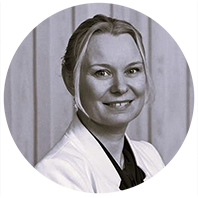
Minna Pikkarainen
works in Oslo Metropolitan University in the faculty of Health Sciences /Centre and Faculty of Technology, Art and Design (TKD) as a professor in Digitalization of Healthcare Services. The aim of the work is to conduct research on the effects of digitalization in health care services and health care professions.
Today we are experiencing a digital revolution. It has already affected medical work and health care in many ways such as processing data, diagnostics, spreading of information about medical diagnostics, assisted living technologies. As technology replace individual tasks and specialist knowledge is made more readily available, some health care work will be transformed radically, and new specialties will appear. In certain areas, technologies can replace humans, and in other cases man and technology can work together to solve problems neither would be able to do well separately. The focus of the professorship is on the consequences of digitalization on health care services.
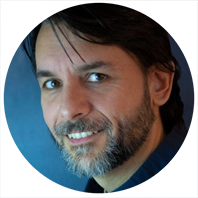
Nenad Pavel
Nenad Pavel is an associate professor at the department of product design at Oslo Metropolitan University. Nenad is a design researcher and has doctoral degree from the educational science program from Oslo Metropolitan University and master’s degree in product design. He has ten years of experience in designing products and UX. His academic experience includes ten years of teaching design, coordinating projects between industry and academia, developing research applications and university curricula. Nenad is a member of research groups design for health and design, culture and sustainability where he contributes to the areas of human-technology relations, design pedagogy, design for health and wellbeing. Nenad’s areas of expertise include design research especially participatory design and design science, design driven innovation, user experience design, and digital prototyping.
Research Group Members
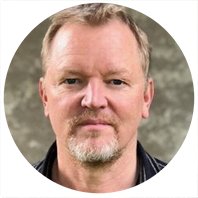
Arild Berg
Arild Berg is Professor in Artistic Research in the field design, applied art and art. His expertise is in product design, architectural ceramics, methods for participation and communication through the aesthetics of materiality. He has a Doctor of Art in Artistic research in Public Space, and he has a MA in Ceramic Art. He is a member of the research groups Design, Culture and Sustainability, Art in Society and the Collaborative Action Research Network (CARN). He has been Head of studies for the Bachelor Program in Product Design. He focuses on research collaboration between professional practitioners for cross disciplinary innovation. He has been Vice Dean for Research and Development at the Faculty of Technology, Art and Design, including the departments: Department of Mechanical, Electronic and Chemical Engineering, Department of Civil Engineering and Energy Technology, Department of Computer Science, Department of Art, Design and Drama and Department of Product Design. He was project leader in establishing the interdisciplinary PhD Program ‘Engineering Science’. He is the Norwegian coordinator for the Creative Europe project Craft Hub, led by Irish Carlow Craft Council. Arild Berg is also Professor II at Dpt. of Art, Faculty of Education, Arts and Sports, Western Norway University of Applied Sciences.
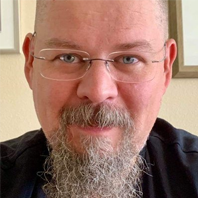
Mikael Omlid
Mikael Omlid is an engineer and CAD CAM expert at the Department of Product Design at Oslo Metropolitan University. He has experience in designing and manufacturing medical products and has been involved in prototyping medical devices at Oslo University Hospital. Mikael applies his technical expertise to the development of innovative medical products, and his work has significantly impacted both product development and patient care.

Trust Saidi
Trust is a postdoctoral fellow at the Department of Product Design, OsloMet. His academic expertise lies in Science & Technology Studies and Innovation Studies, with a focus on the intersection of design, technology and healthcare. Trust is committed to advancing innovative healthcare solutions that enhance human well-being. In his work, he emphasizes the integration of diverse knowledge domains and perspectives to create solutions that are not only socially desirable, but also economically viable and environmentally sustainable. His approach is rooted in human-centered methodologies, particularly design thinking, to address complex challenges in healthcare innovation and design. Trust has extensive experience in fostering collaboration among a wide range of stakeholders, including government agencies, non-governmental organizations, academic researchers, private companies and multilateral institutions, demonstrating his ability to navigate and connect interdisciplinary and cross-sectoral initiatives effectively.
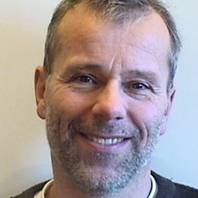
Nils Siersten
Nils Siersten is a seasoned product designer and pedagogue with extensive experience in furniture design and ergonomics. He currently serves as a Product Design teacher at the Department of Product Design at Oslo Metropolitan University. His breadth of practical experience with different materials and in the department workshop allows him to bring a hands-on approach to his teaching. Nils’ dedication to design and education has made a significant impact on his students, inspiring them to think creatively and critically about product design.
Research Group Associated Members
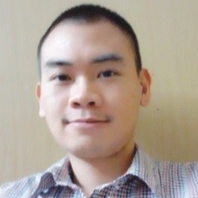
Way Kiat Bong
Way Kiat Bong is an accomplished researcher and academic professional with extensive experience in universal design, welfare technology, gerotechnology and human-computer interaction. Currently serving as an Associate Professor at Oslo Metropolitan University since 2020, he has also contributed as a researcher at the University of Oslo, focusing on projects related to technology acceptance and quality of life for older adults through Tangible User Interface (TUI) applications. His PhD research and earlier roles as a Research Assistant centered on universal design in ICT, integrating heuristic evaluation and research planning. Prior to his academic career, he gained industry experience as a Procurement Executive at PETRONAS, ensuring governance and value creation, and as a Test Engineer at F-Secure Corporation, where he developed and executed software test cases. Additionally, he holds a Master’s degree in Universal Design of ICT and has a diverse background that includes office work and visa application documentation at Visumexpert AS.
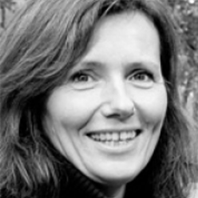
Helen Bull
Helen Bull is a dedicated researcher focused on developing a digital solution for treating scoliosis in children and adolescents. She has published numerous scientific papers in the field of mental health and occupational therapy.
Some of her significant contributions include a study on the work inclusion of marginalized groups in a troubled city district, the concurrent validity of the Norwegian versions of the psychotic symptom rating scales, and the benefits of vocational activity for people with schizophrenia spectrum disorder in Norway.
Bull’s research also explores the potential cost-effectiveness of a vocational rehabilitation program for individuals with schizophrenia in a high-income welfare society. She has examined the long-term outcomes of vocational rehabilitation augmented with cognitive behavioral therapy or cognitive remediation for individuals with schizophrenia.
Her work extends to investigating the engagement of first-year occupational therapy students in learning activities. Bull’s research and commitment to improving mental health and occupational therapy interventions are evident in her diverse and impactful portfolio.
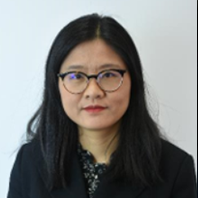
Wang Fan
Wang Fan received my Ph.D. in International Business at Oulu Business School, University of Oulu, in November 2016. Her research interests include digital business, data management solutions, the adoption of emerging technologies, and studies of ecosystems. I have a particular focus on the healthcare industry, recognizing its unique challenges and opportunities for innovation.
She is currently working on two projects. The project, Local 6G for Smart Hospitals, aims to identify 6G use cases in hospitals and develop alternative business models for local 6G mobile operators. Another project I undertake is the Hospital-at-Home project, which focuses on improving the healthcare value chain of hospital at home services. I’ve been working on various projects, including the 6G flagship, 6GESS, which focuses on human-centric data and its management in healthcare contexts, and the European Regional Development-founded DATAKI, which focuses on SME digital transformation in the Oulu region.
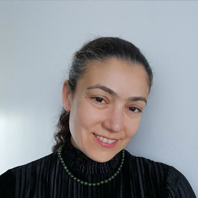
Parisa Gazerani
Professor Parisa Gazerani is a distinguished researcher in translational neuroscience, specializing in neuropharmacology with a strong interest in neuroinformatics and innovative solutions for brain health, as well as the prevention and management of brain disorders. She serves as a Professor of Pharmacology in the Pharmacy Program at the Department of Life Sciences and Health, Faculty of Health Sciences, Oslo Metropolitan University. As an educator, she is deeply committed to advancing pharmacy education, striving to enhance teaching methods, foster professional competencies, and expand the role of community pharmacists in primary patient care.
In addition to this academic role, she is the Head of the Pharmaceutical Unit at the Athens Institute, Greece. In this leadership capacity, she is dedicated to fostering collaboration, advancing pharmaceutical research, and driving innovation in patient-centered care. She also serves as the Editor-in-Chief of the Athens Journal of Pharmaceutics and is a member of the editorial boards of several other esteemed journals. She is one of Norway’s representatives for the COST Action CA22111 – A European consortium to determine how complex, real-world environments influence brain development (ENVIRO-DEV).
Her current research focuses on cutting-edge technologies, including the development of digital twins for managing neurological disorders such as chronic pain, migraines, neuroinflammation, and neurodegenerative diseases. She is actively exploring digital and robotic solutions with a focus on personalized pain management, addressing the needs of diverse populations such as children, women, and the elderly. Her work further encompasses neuroscience, glial cell biology, neuroinformatics, and the impact of environmental factors on brain health, integrating both preclinical and computational modeling approaches.
Professor Gazerani has published extensively, with over 300 articles in high-impact journals (please follow her work on ORCID: https://orcid.org/0000-0003-0109-3600). Her influence in the field has been recognized globally; she was included in Stanford University’s prestigious 2024 World’s Top 2% Scientists list, which highlights the most influential researchers across all disciplines. This ranking, compiled in collaboration with Elsevier and based on Scopus data, highlights her leadership in neuroscience and health research. In 2024, she was also honored with the prestigious University Research Prize at OsloMet.
A highly collaborative researcher, she is involved in several national and international projects aimed at exploring mechanisms underlying brain disorders, identifying and testing treatment and preventive strategies, and designing and developing intelligent solutions to improve the quality of life for patients across age groups and neurological conditions. Her innovative contributions and dedication to advancing science make her a highly respected figure in basic and applied health science research.
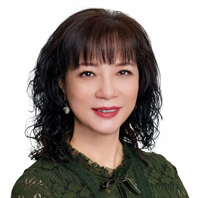
Linda He Hong Gu
Professor He Hong-Gu Linda is the Director of Graduate Research Programmes and Convenor of Women and Children Health Care Research Programme, Alice Lee Centre for Nursing Studies (NUS Nursing), Yong Loo Lin School of Medicine, National University of Singapore. She was the Director of Research from 2019-2022. Prof He was inducted as a Fellow of the American Academy of Nursing in 2021 due to her critical and substantial impacts on nursing education, research, health services and policy.
Prof He has 30 years of teaching and supervision experience and received several Teaching Excellence Awards. As a pioneer faculty member, she has contributed to curriculum development for MSc/PhD, BSc(Nurs)(Hons), and BSc(Nurs) programmes. She has supervised over 100 research students and examined over 110 research theses. Prof He has developed and applied many innovative teaching methods (e.g. role-plays, problem-based learning, simulation using standardised patients, interprofessional education) in NUS Nursing.
Prof He has an extensive and excellent research track record in women and children health care and chronic illness management using educational and psychosocial interventions through confident and active collaboration with multidisciplinary experts from Asian and Nordic countries. She is passionate about applying technology in her interventional programmes, aiming to improve cost-effective health care. She has received over S$17.9 million research grants as PI/Co-I/Collaborator, published over 200 peer-reviewed journal articles (h-index 27), books and book chapters. She has developed a series of videos, website, mobile apps and games to improve the care of various populations. Prof He presented over 120 research studies and 45 invited speeches at international/national conferences/workshops.
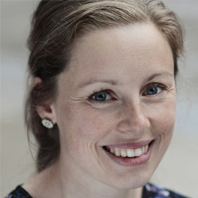
Heidi Holmen
Heidi Holmen is employed as an associate professor at the Department of Nursing and Health Promotion, Faculty of Health Sciences. In her research, she focuses on health technology and how technology can support people with chronic illness, both adults with diabetes and children receiving child palliative care. Heidi secured funding from the prestigious “Young research talents” in 2020 in the research council of Norway for a project on health technology in homebased pediatric palliative care. Further, she has led a project on Digital Outpatient care for adults at Oslo University Hospital, and has an ongoing collaboration with Akershus University Hospital on digital care for people with Type 1 diabetes in the DigiDiaS project. She is particularly interested in user involvement in research and methods to ensure this. She is an alumni member of the Academy for Younger Researchers, based on her membership from 2017-2021. She has a PhD in mobile apps for people with type 2 diabetes (UiO 2017), a Master’s in Public Health from the Norwegian University of Life Sciences (2010) and a Bachelor’s in Nursing from Nord University (2006). She also has further education in clinical diabetes nursing from the Western Norway University of Applied Sciences (2011

Julia Jacoby
Julia Jacoby is the head of the design team at Kongsberg Digital .
Julia carries out research on the complex relationships between humans, technology, and systems, combining insights from research and development and service design, discourse, anthropology. She is particularly interested in understanding how design and technology can shape experiences. She has studied the intersection between health and design and has particularly focused on the role of apps in influencing the experience of chronic illness, what problems and challenges are related to how we interact with and apply new technologies, concepts, and methods. That interest led me to complete my PhD in design and health at NTNU.
Her PhD follows the working title «Experiences in chronic care. How can design support the integration of chronic illness into a patient’s daily life.» This thesis investigates whether design theory and method can help to better integrate care practices in chronic illness into a patients daily life. By reconsidering typologies of care and their continuous nature care practices can be influenced or changed for patients suffering from chronic diseases.
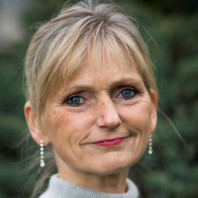
Anne Lund
Anne Lund is a dedicated professional with a focus on ageing, health, occupational therapy, and rehabilitation. Her work centers on supporting meaningful occupations throughout the life course, employing transdisciplinary work, needs analysis, and user involvement. She has worked extensively with people suffering from stroke, mild cognitive impairments, and dementia. Lund also explores the use of assistive technology, responsible innovation and research, and complex interventions.
Her research includes exploring the role of next of kin in health services, the experiences of older homecare recipients with technologies, and the use of virtual reality in cognitive training for individuals with acquired brain injury. She has also investigated the use and experiences of communication technology by home-dwelling older adults in a homecare context. Additionally, Lund has contributed to studies on interdisciplinary frontline teams in home-based healthcare services and occupational therapy interventions for persons with cognitive impairments living in the community. Her contributions to the field are significant and help enhance the quality of life for elderly individuals and those dealing with cognitive impairments.
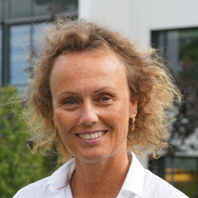
Anne Catrine Trægde Martinsen
Anne Catrine Martinsen is an accomplished professional with significant contributions to the medical field. She currently holds the position of Research Director at Sunnaas Hospital and serves as a part-time Professor at OsloMet – Oslo Metropolitan University.
Her research track record is extensive, touching on areas such as image quality and radiation doses in abdominal CT, the effectiveness of digital home rehabilitation for stroke survivors, and the impact of body compositions on contrast medium enhancement in chest CT.
She has also contributed to research on the demographic, medical, and clinical characteristics of patients with long-lasting Locked-In Syndrome and the improvement of image quality with deep learning reconstruction. Her work extends to studies on iterative reconstruction and its impact on image quality and radiation dose in trauma protocols, the status of Eustachian tube balloon dilations in Nordic countries, and the development of otology-specific outcome measures.
Martinsen’s career at Oslo University Hospital spanned over 15 years, where she held the position of Head of Diagnostic Physics Department and Head of Section for diagnostic physics at The Intervention Centre. She was also the Head of Centre for Diagnostic Physics. Concurrently, she spent over 13 years at the University of Oslo, serving as an Associate Professor and Lecturer. Her vast experience and dedication to her field are evident in her extensive portfolio of impactful research.
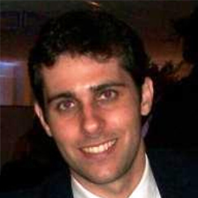
Fausto Orsi Medola
Fausto Orsi Medola is an Associate Professor at the Department of Design and the Graduate Program in Design at FAAC/UNESP, Bauru Campus. He holds a Master’s and PhD in Sciences from the Interunits Graduate Program in Bioengineering (EESC/FMRP/IQSC – USP), with part of his doctoral studies conducted at the Georgia Institute of Technology in Atlanta, USA. He also has a Bachelor’s degree in Physical Therapy from Londrina State University. Currently, he serves as the President of the Brazilian Society of Gerontechnology (SBGTec), where he has been an active member since 2019 and previously served on the board of directors from 2020 to 2022. He leads the Design and Assistive Technology Research Group and is a member of Oslo Metropolitan University’s Design for Health research group. His research focuses on Industrial and Product Design, Ergonomics, Assistive Technology, Gerontechnology, Biomechanics, Mobility, Wheelchairs, Accessibility, and Inclusive Design.

Ingvild Rosseland
Ingvild Rosseland is an experienced physiotherapist and department leader with over 13 years of expertise in rehabilitation and healthcare management. She currently serves as the Head of the Physiotherapy, Ergotherapy, and Intake Department at Forsterket Rehabilitering Aker, where she has been leading and contributing to improved patient outcomes since 2012. Concurrently, she works as a physiotherapist for Oslo Municipality, further demonstrating her dedication to enhancing rehabilitation services. In addition to her clinical and leadership roles, she holds an Executive Master’s degree in Leadership with a focus on Health Administration from BI Norwegian Business School, equipping her with advanced skills in healthcare management. Passionate about advancing the field, she has a strong interest in research and actively seeks to secure research funding to support innovative projects in physiotherapy and rehabilitation. Her expertise in physiotherapy and rehabilitation is recognized by endorsements within her professional network, including her involvement with the Norwegian Physiotherapy Association.
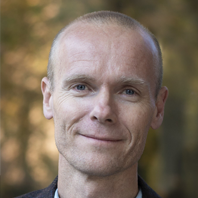
Yngve Røe
Yngve Røe is a Professor at the Department of Rehabilitation Science and Health Technology at OsloMet, specializing in digital health and digital transformation in health professions education. His research interests focus on developing digital competence and innovation within healthcare education, with an emphasis on integrating advanced digital pedagogies, such as simulation-based learning and active digital learning, into physiotherapy and other health programs. As a former leader of the Educational Research Network at OsloMet’s Faculty of Health Sciences, Røe promotes interdisciplinary research to advance digitalization in healthcare education, preparing students and professionals for evolving digital demands. His work in musculoskeletal research, especially shoulder pain, complements his broader mission to enhance digital literacy in health, ensuring that healthcare professionals are equipped with the technological skills needed in modern healthcare environments
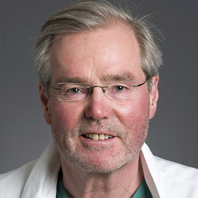
Juha Tapio Silvola
Professor Juha Tapio Silvola is an esteemed ear doctor with a prolific track record in otology research. His research encompasses diverse areas such as the microbiome of the external auditory canal, rapid diagnostic and treatment for acute hearing loss, and the impact of balloon dilation on patients with obstructive Eustachian tube dysfunction.
Prof. Silvola’s research also delves into the experiences of torture survivors receiving surgical treatment and the potential for retraumatization. He has contributed to studies on various conditions, including acute otitis externa, auricular erysipelas, and tympanostomy treatment in young children.
His expertise extends to the study of vowel confusions in well-performing adult cochlear implant users, and the re-traumatization of torture survivors during treatment in somatic healthcare services. Prof. Silvola’s work also includes research on the eradication of methicillin-resistant Staphylococcus aureus biofilm in skin wound infections.
Research Group PhD Candidates
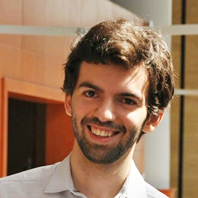
Koray Canlar
Koray Canlar is a PhD candidate working on maker space based participatory processes for people with disabilities. The effects of disabilities can vary significantly between individuals (e.g., function and body structure problems, limitations, or prevention of involvement in activities). This variability in the needs of people with disabilities demands inclusive and universal design approaches and personalized assistive solutions which empower people with disabilities, allowing them to have more control over their actions and to participate in activities. The empowering potential of the maker movement and production activities for individuals with disabilities is apparent, but not thoroughly investigated. In this thesis research, the empowerment of people with physical disabilities through their involvement in designing, making, and adapting processes of their own assistive products are investigated from the developing country context of Norway. The research utilizes semi-structured interviews and participant observations of people with various physical disabilities. The study highlights most significantly that individually specific disabilities affect both assistive product use and community participation, that there is a need to personalize assistive products, and that people with disabilities tend to form personal networks for making activities.

Anna Mathew
Kamilla Sykorova is a PhD candidate working on intelligent scoliosis west. The overall aim of this project is to co-create, test and validate the first service of a personalized gamified, mobile physiotherapy and treatment solution for the youth (10–24 years) with scoliosis, which has not been investigated or offered to the patients in Norway before.
This solution also aims to introduce physiotherapy in the form of gamified elements that youth can easily access and use together with their parents and encourage higher treatment compliance.
Companies, end users, and expert teams will be involved to co-create and continuously test the first prototype of gamified, personalized mobile physiotherapy and treatment intervention for children and teenagers with scoliosis.
The prototype of the solution will be preliminary validated with youth in Norway to understand the strengths and weaknesses of the solution in terms of usability, fidelity, and motivation.
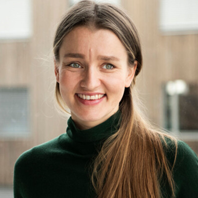
Leila Steen
Leila Steen is a PhD candidate from OsloMet who has been focusing her research on participatory processes and logistics in hospitals. Implementing the principles of design thinking, she works to improve patient flow and treatment pathways by involving all stakeholders in the process. She brings to her research a wealth of practical experience from the health sector, particularly in the field of 3D printing and emerging technologies. Her previous roles include serving as a Committee Member at the European Health Parliament, being a Clinical Engineer at Materialise, and working as a Production Designer at Onlea. During her time at the University of Alberta, she concentrated on surgical design and simulation. Her work in the health sector and her innovative approach to integrating design thinking and technology into healthcare logistics mark her as a forward-thinking researcher in her field.
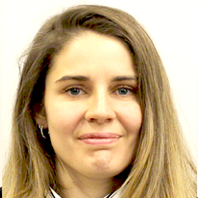
Kamila Sykorova
Kamila Sykorova is a PhD candidate, with background from physiotherapy and UX Design, working on scoliosis project. The aim of this project is to co-create, test, and validate the first service of a personalized gamified, mobile physiotherapy and home treatment solution for the children and teenagers with scoliosis, which has not been investigated or offered to the patients in Norway before.
This service aims to introduce physiotherapy in the form of a gamified elements that children and adolescence can easily access using their own laptop or desktop and use together with their parents and encourage to higher treatment compliance.
The companies, end users and expert teams will be involved to co-create and continuously test the first prototype of gamified, personalized mobile physiotherapy and treatment intervention for the children and teenagers with scoliosis.
The prototype of the solution will be preliminary validated with the children or adolescence in Norway to understand strengths and weaknesses of the solution in terms of usability, fidelity, and motivation.